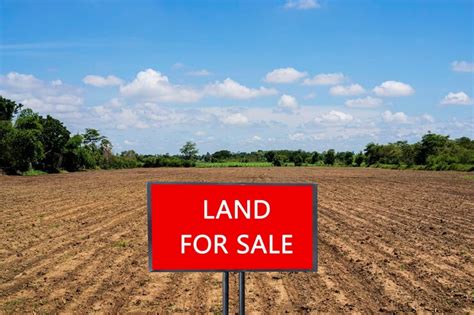Selling Land: A Comprehensive Guide to Navigating the Process
Selling land can be a lucrative venture, but it's a unique process that differs significantly from selling a house or other property. Understanding the nuances of land sales is crucial for a successful transaction. This comprehensive guide will walk you through the essential steps, from preparation to closing, ensuring you maximize your return and navigate the process smoothly.
Preparing Your Land for Sale
Before listing your land, thorough preparation is key. This involves several crucial steps:
1. Determining the Value of Your Land:
Accurately assessing your land's worth is paramount. Factors influencing value include location, size, zoning regulations, access to utilities, and potential uses (agricultural, residential, commercial). Consider:
- Professional Appraisal: A licensed appraiser provides an objective valuation, crucial for setting a realistic asking price.
- Comparable Sales Analysis (CMA): Research recent land sales in your area with similar characteristics to gauge market value.
- Potential Development: If your land has development potential, factor in the increased value this could bring.
2. Understanding Zoning and Regulations:
Familiarize yourself with all applicable zoning regulations and restrictions. This includes permitted uses, building codes, environmental regulations, and any easements or rights-of-way affecting the property. Ignoring these can lead to significant complications during the sale.
3. Title Search and Survey:
A clear title is essential. Conduct a title search to identify any liens, encumbrances, or other issues that could affect the sale. A recent survey accurately delineates your property boundaries, preventing future disputes.
Marketing Your Land Effectively
Marketing your land effectively requires a targeted approach:
1. Choosing the Right Marketing Channels:
Consider multiple avenues to reach potential buyers:
- Real Estate Agents: A specialized land agent understands the nuances of land sales and has access to a broader network of buyers.
- Online Listings: Utilize platforms like LandWatch, Lands of America, and Zillow to reach a wide audience.
- Local Publications: Advertise in newspapers or magazines focusing on real estate or agriculture in your area.
2. Creating Compelling Marketing Materials:
High-quality photos and videos showcasing the land's features are crucial. Include detailed descriptions highlighting key selling points, such as acreage, access, views, and potential uses.
Navigating the Sale Process
The sale process itself requires careful attention to detail:
1. Due Diligence and Negotiations:
Potential buyers will conduct due diligence, reviewing surveys, title reports, and environmental assessments. Be prepared to address their questions and negotiate terms.
2. Legal Considerations:
Engage a real estate attorney experienced in land transactions to review contracts, ensure compliance with regulations, and protect your interests.
3. Closing the Deal:
The closing process involves finalizing the sale, transferring ownership, and handling the funds. Your attorney will guide you through this process.
Frequently Asked Questions (PAA)
While the specific questions may vary depending on your search engine and location, here are some common questions people ask about selling land, along with their answers:
How long does it take to sell land?
The timeframe for selling land varies greatly depending on market conditions, the land's characteristics, and the buyer's due diligence process. It can range from a few weeks to several months or even longer.
What are the closing costs when selling land?
Closing costs for land sales typically include attorney fees, title insurance, survey costs, and potentially real estate agent commissions. The exact costs depend on the specifics of the transaction and your location.
What taxes do I have to pay when selling land?
Capital gains taxes are typically applied to the profit made from selling land. The exact tax rate depends on your holding period (short-term or long-term) and your overall tax bracket. Consult a tax professional for personalized advice.
How do I find a buyer for my land?
Utilizing a combination of online listings, real estate agents specialized in land sales, and local advertising is an effective approach to finding a buyer. Networking within your community can also yield promising results.
Conclusion
Selling land is a complex process requiring careful planning and execution. By thoroughly preparing your land, marketing it effectively, and navigating the legal aspects diligently, you can successfully complete the sale and maximize your financial return. Remember to seek professional advice from appraisers, attorneys, and real estate agents specialized in land sales throughout the process. This will ensure a smooth and profitable transaction.

